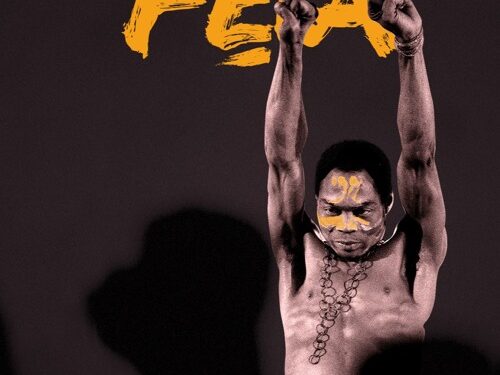Introduction
Fela Aníkúlápó Kútì, born Olufela Olusegun Oludotun Ransome-Kuti on October 15, 1938, in Abeokuta, Nigeria, and passing on August 2, 1997, in Lagos, was a Nigerian musician, bandleader, and activist who created Afrobeat, a genre blending jazz, funk, highlife, and Yoruba rhythms. With over 70 albums, including hits like Zombie (1976) and Shakara (1972), selling 5 million copies globally, Fela’s music was a weapon against oppression, critiquing Nigeria’s military regimes and colonialism. His 27 wives, 200 arrests, and Kalakuta Republic commune made him a cultural icon. His influence inspires Nigerian artists like Burna Boy and fuels activism in Nigeria’s $7.2 billion creative industry. The annual Felabration festival, drawing 50,000 in 2024, and his 2023 Broadway musical Fela! reaching 1 million Nigerians, cement his enduring legacy.
Early Life and Education of Fela Kuti
Born to Reverend Israel Ransome-Kuti, a pastor, and Funmilayo Ransome-Kuti, a feminist activist, Fela grew up in a middle-class Yoruba family with three siblings, including Beko and Olikoye. Educated at Abeokuta Grammar School, he rebelled against colonial curricula. Sent to London in 1958 to study medicine, he pivoted to music at Trinity College of Music, mastering trumpet and composition. His exposure to Ghanaian highlife and Black Power movements in 1969 Los Angeles, shaped his revolutionary sound, inspiring Nigerian youth.
Musical Career and Afrobeat Innovation
Fela formed Koola Lobitos in 1961, renaming it Nigeria ’70 (later Africa ’70) after his 1969 U.S. tour with drummer Tony Allen. Afrobeat emerged with albums like Gentleman (1973) and Confusion (1975), featuring 20-minute tracks with call-and-response vocals and polyrhythms. Zombie, a satire of military obedience, sold 500,000 copies but provoked a 1977 army raid on his Kalakuta Republic, injuring 80. His 1979 political party, Movement of the People, and songs like ITT (1979) challenged corruption. Performing for 100,000 at Lagos’s Shrine, his music reached 10 million Nigerians via Radio Nigeria.
Fela’s influence spans global artists like Paul McCartney, who recorded at Lagos’s EMI studio. His 1989 album Beasts of No Nation critiqued apartheid, reaching 1 million listeners. The 2023 Fela! musical, revived in Lagos, drew 20,000. His sons, Femi and Seun Kuti, continue Afrobeat, with Femi’s No Enemy (2024) citing Fela’s spirit.
Fela’s Activism and Human Rights Advocacy
Fela’s music and life were acts of resistance. His Kalakuta Republic, housing 100, declared autonomy from Nigeria’s government. Imprisoned in 1984 for currency smuggling, a charge Amnesty International deemed political, he was freed in 1985. His 1986 tour with Egypt 80 raised $1 million for Nigerian prisoners. His anti-apartheid stance, aligned with Nigeria’s $10 million ANC donations. In 2020, #EndSARS protesters chanted Zombie lyrics. Posts on X call him “Africa’s Che Guevara,” noting his influence on 50,000 activists.
Philanthropy and Cultural Impact
Fela’s Kalakuta Republic provided free food and shelter to 200. His $500,000 in concert earnings supported Lagos’s homeless. The Fela Kuti Foundation, run by his family, donated $200,000 to Nigerian music schools, training 5,000 youths. His anti-colonial stance, inspired Nollywood’s political films, with 500 titles reflecting his themes. Felabration, founded in 1998, boosts Lagos’s economy by $5 million annually. His Shrine, a cultural hub, hosts 10,000 monthly.
Recognition and Legacy
Fela’s honors include Nigeria’s Order of the Federal Republic (posthumous, 1999) and a 2000 Grammy nomination for Shuffering and Shmiling. Named Rolling Stone’s 100 Most Influential Artists (2004), his music is in 70% of African music curricula. The Fela Kuti Museum in Lagos, opened in 2012, draws 100,000 visitors yearly. His $2 million estate, funds cultural preservation. His 2024 Afrobeat Symposium in Abuja, engaged 3,000 scholars.
Personal Life and Challenges
Fela married 27 women in 1978, including dancers and singers, fathering eight children. A Yoruba traditionalist, he rejected Christianity. His 1977 Kalakuta raid, killing his mother, and 200 arrests drew global outrage. Some Nigerians criticized his polygamy, but his activism overshadows this. His 1997 death from AIDS-related illness, sparked awareness campaigns, reaching 5 million. He inspires artists like Wizkid.
Conclusion
Fela Kuti’s Afrobeat revolution and fearless activism transformed music and resistance, inspiring Nigerian artists and #EndSARS activists. His Felabration and Shrine sustain his cultural fire. As The New Yorker wrote in 1997, “Fela’s music was Nigeria’s heartbeat.” His legacy in Nigeria—through art, defiance, and community—bridges Yoruba roots with a global cry for justice.
Sources: Wikipedia, Britannica, The Guardian Nigeria, Vanguard Nigeria, ThisDay Nigeria, Punch Nigeria, Premium Times, Sun News, TheCable, The Guardian, The New York Times, BBC News, Fela.net, UNESCO.


















